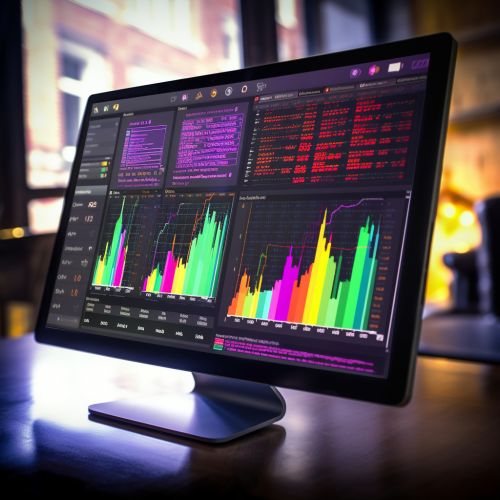Social Arbitrage Trading
Introduction
Social arbitrage trading is a financial strategy that involves the exploitation of discrepancies in the price of a particular asset across different markets. This strategy is based on the economic principle of arbitrage, which posits that a risk-free profit can be made by buying an asset in a market where it is undervalued and selling it in another market where it is overvalued.


Concept and Theory
The concept of social arbitrage trading emerged from the traditional practice of financial arbitrage, which has been a cornerstone of financial markets for centuries. However, unlike traditional arbitrage which primarily focuses on financial instruments and commodities, social arbitrage trading extends this principle to social phenomena, such as trends, behaviors, and perceptions.
The theoretical underpinning of social arbitrage trading is rooted in the efficient market hypothesis (EMH), which asserts that financial markets are always perfectly efficient. This means that the prices of assets in these markets always fully reflect all available information. However, the EMH has been widely criticized for its inability to account for social factors that can influence asset prices. This is where social arbitrage trading comes in. It posits that social factors can create temporary inefficiencies in markets, which can be exploited for profit.
Social Factors and Market Inefficiencies
Social arbitrage trading is predicated on the idea that social factors can create temporary market inefficiencies. These factors can range from public sentiment and consumer behavior to political events and cultural trends. For instance, a sudden shift in public sentiment towards a particular product or company can lead to a temporary overvaluation or undervaluation of the company's stock. Similarly, a political event such as an election can create temporary price discrepancies in the financial markets.
These market inefficiencies present opportunities for social arbitrage traders. By closely monitoring social trends and events, these traders can identify potential price discrepancies and execute trades to exploit them. This requires a deep understanding of both financial markets and social dynamics, as well as the ability to quickly analyze and interpret large volumes of data.
Methods and Techniques
The methods and techniques used in social arbitrage trading are diverse and complex. They often involve the use of advanced data analysis tools and algorithms to monitor social trends and identify potential trading opportunities. Some of the most common techniques include sentiment analysis, trend analysis, and event-driven trading.
Sentiment analysis involves the use of algorithms to analyze social media posts, news articles, and other forms of public discourse to gauge public sentiment towards a particular asset. This can help traders predict potential price movements and execute trades accordingly.
Trend analysis, on the other hand, involves the identification of social trends that can influence asset prices. This can involve anything from fashion trends and popular culture phenomena to political movements and societal shifts.
Event-driven trading involves the execution of trades based on specific social events. For instance, a trader might buy or sell a particular asset based on the outcome of a political election or a major product launch.
Risks and Challenges
Like all trading strategies, social arbitrage trading carries certain risks and challenges. One of the primary risks is the unpredictability of social phenomena. Social trends can change rapidly and unexpectedly, making it difficult to accurately predict their impact on asset prices.
Another challenge is the complexity of the data analysis involved. Social arbitrage trading requires the ability to analyze and interpret large volumes of complex social data, which can be a daunting task even for experienced traders.
Moreover, social arbitrage trading is a relatively new and untested strategy. While it has shown promise in certain contexts, it is still unclear how effective it is in the long term and across different markets.
Conclusion
Social arbitrage trading represents a novel approach to financial trading that seeks to exploit the influence of social phenomena on asset prices. While it is still a relatively new and untested strategy, it offers a promising avenue for traders who are able to navigate the complexities of social data analysis and stay ahead of rapidly changing social trends.
